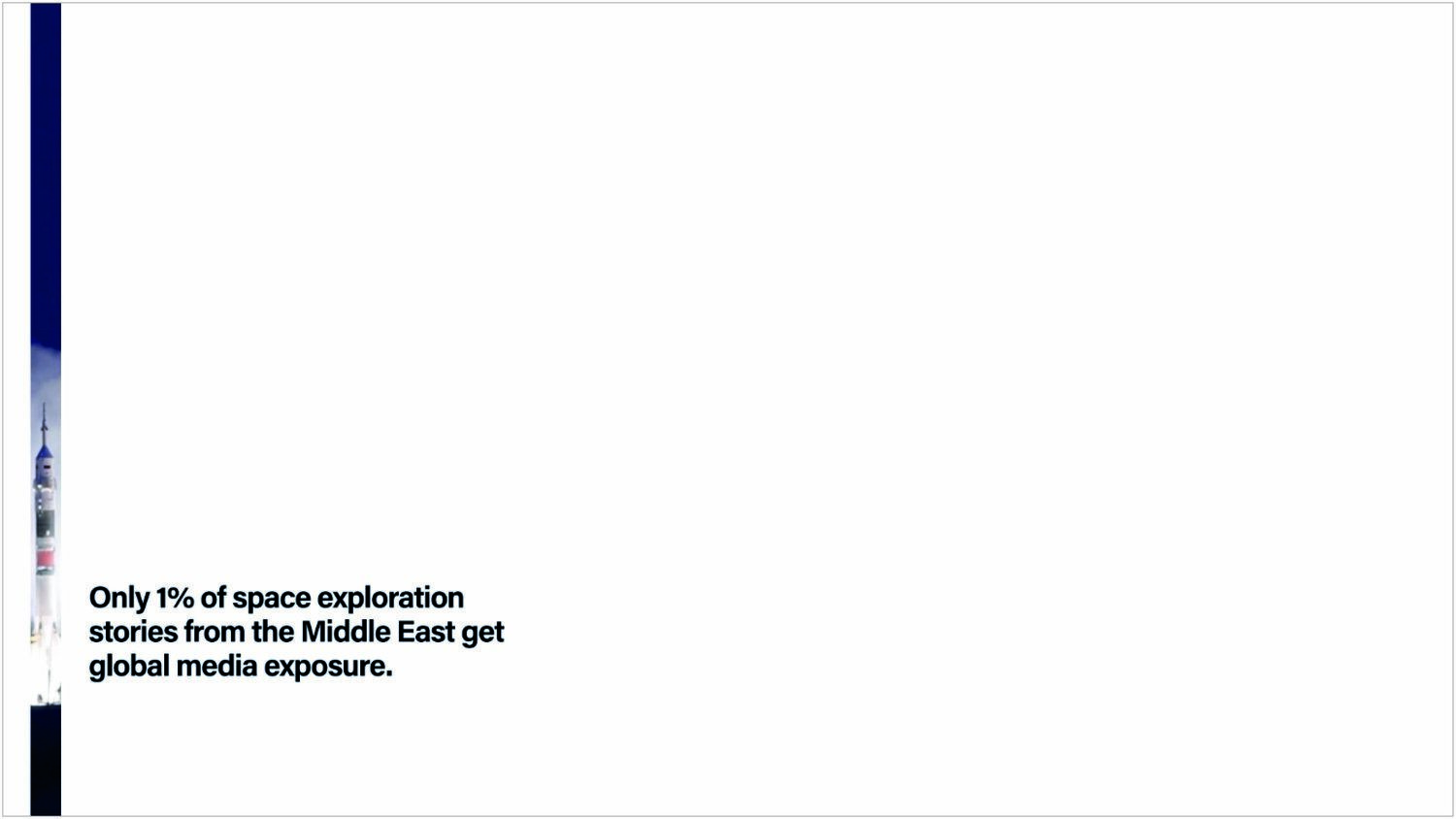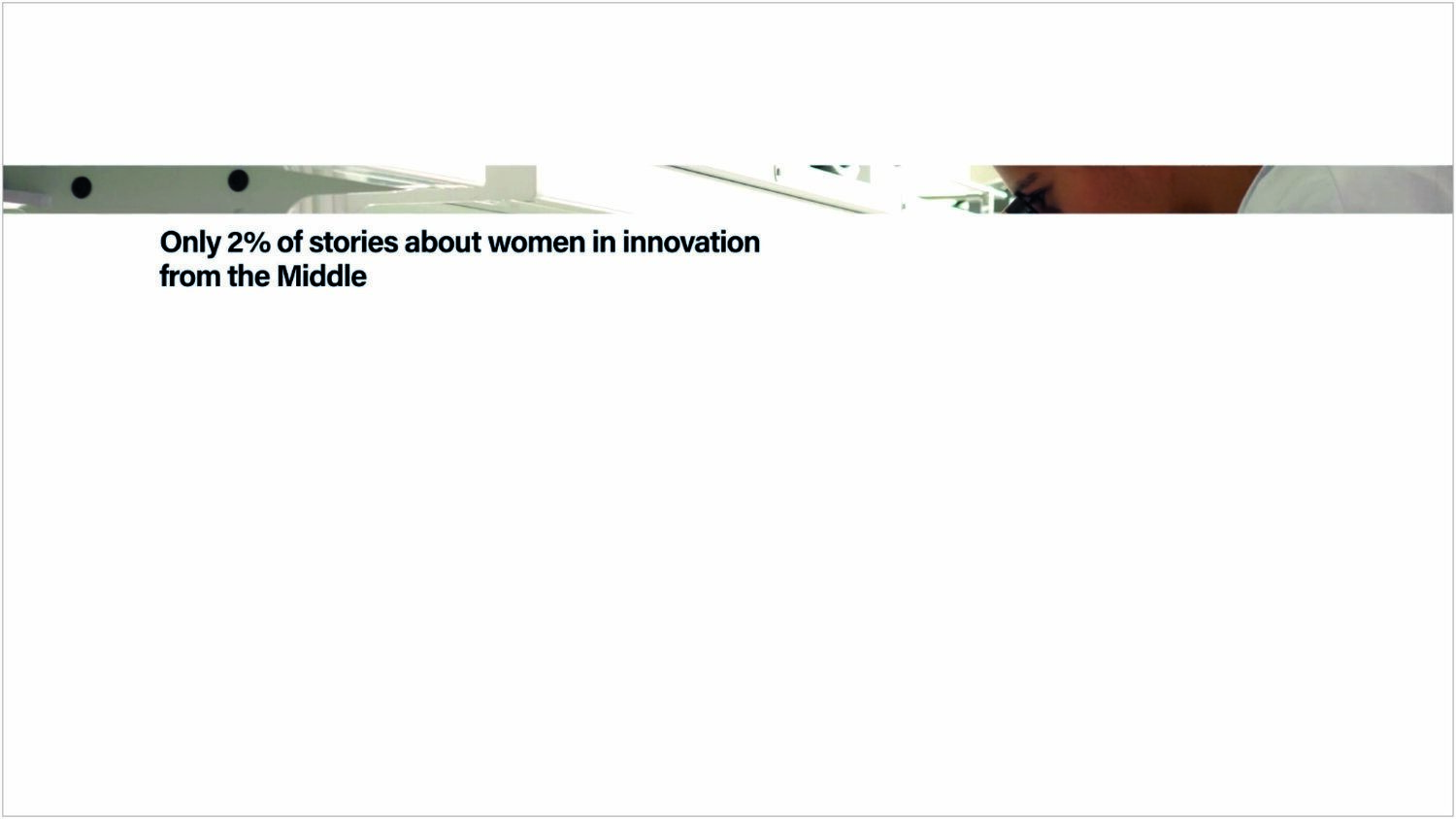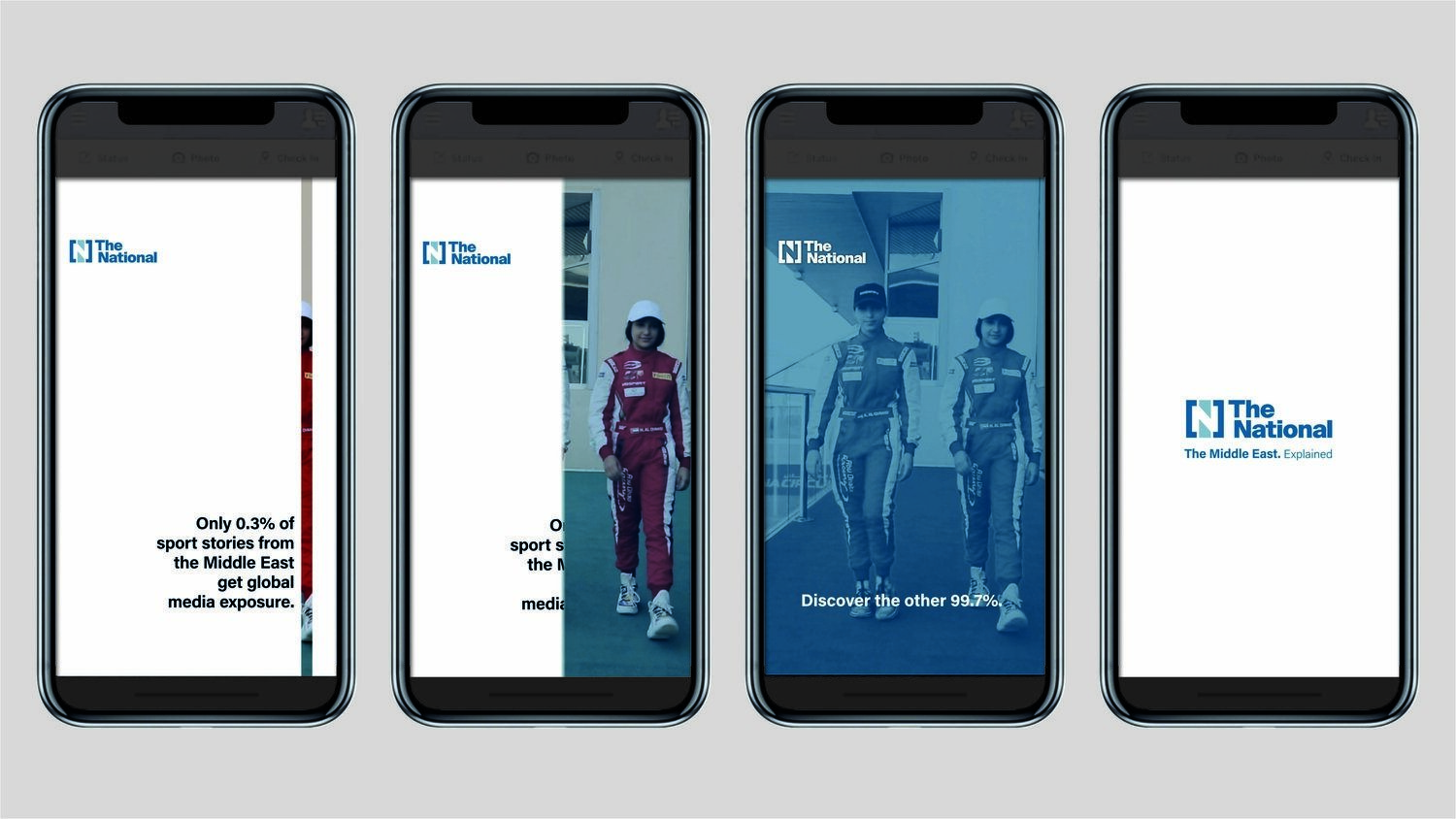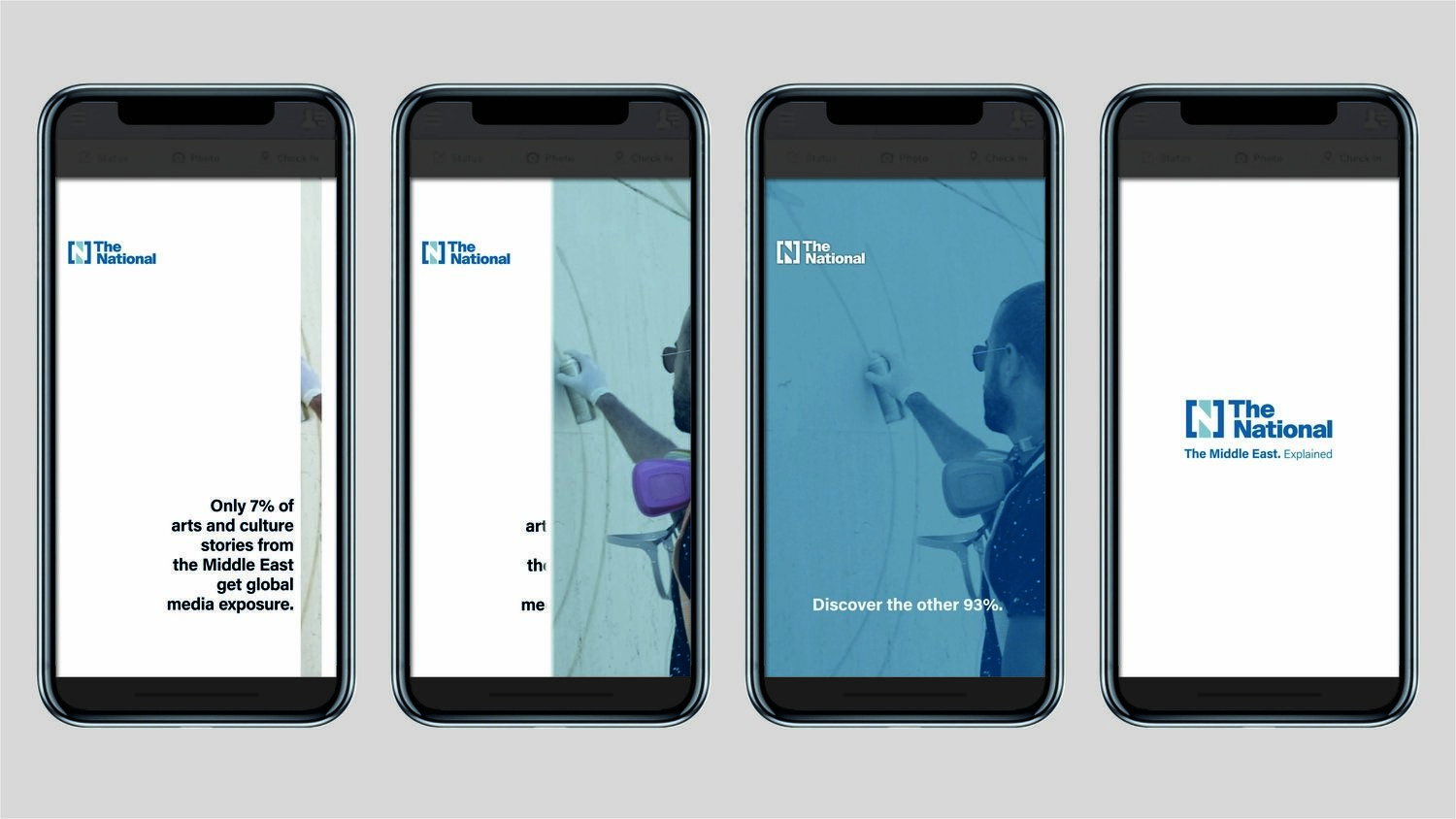The National
The Shocking Percentage
Understanding the relationship between Western media and the Middle East
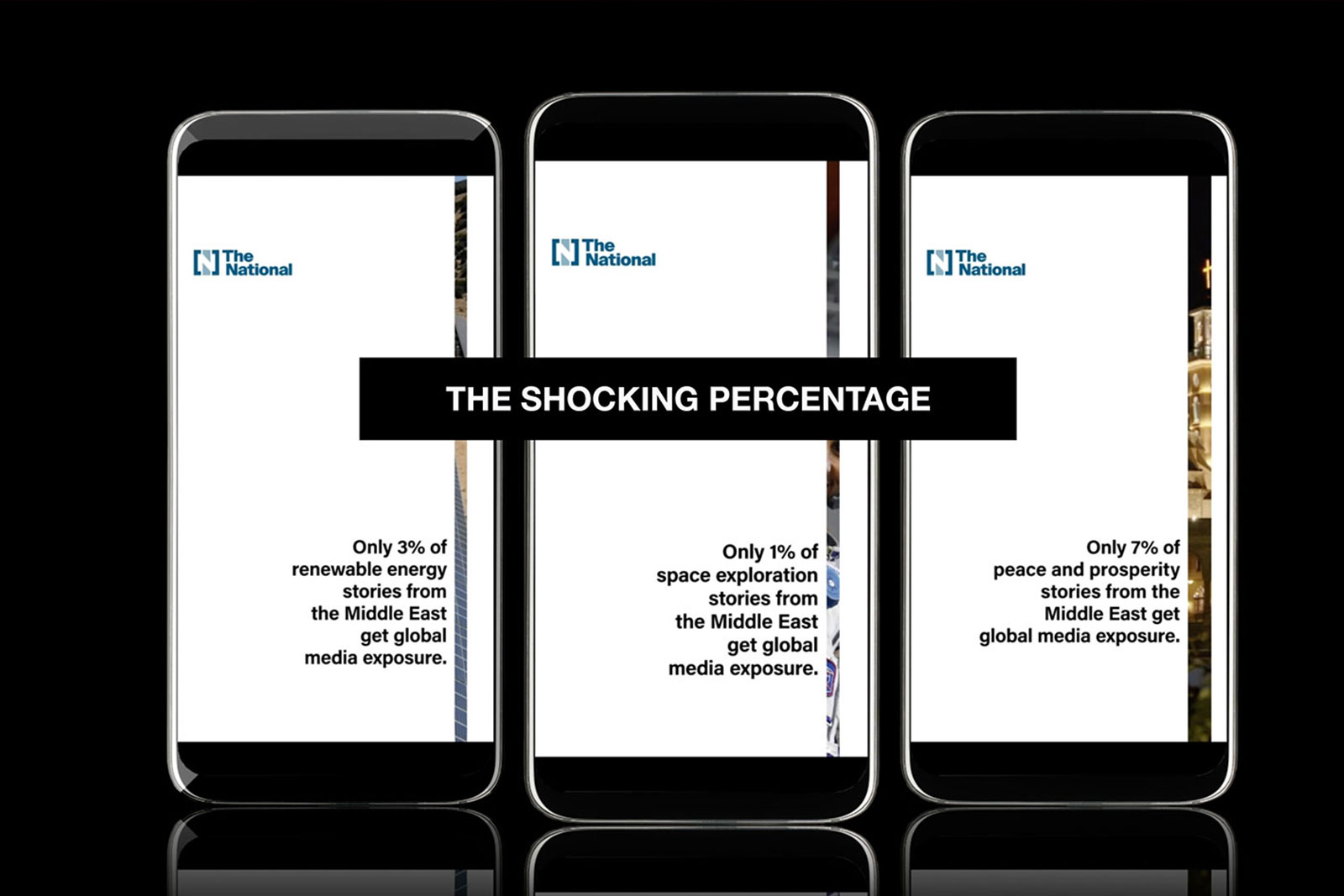
The Western press often neglect positive Middle Eastern stories. Which means we’re not getting the full picture about the region. The National, a leading Middle Eastern news source, wanted to relaunch in the UK and US – to create a clear, unbiased view of the region.
So, we decided to let the data tell the story and created a film that gave you a glimpse of a story about the Middle East. You saw a slither of the picture/story. It was just enough to sharpen your curiosity. The amount of the story you saw was determined exactly by how much coverage the Western press was giving it. For example, in the case of space exploration this was just 1%.
It created a striking visual presence. And of course, when something is hidden from us it makes us all the more determined to find out what it is that’s going on. The campaign worked brilliantly. It drew our audience in – and created a rich, engaging, emotive story around cold hard, logical facts.
RECOGNITION
DMA Awards – 3 Golds for Best Data Storytelling, Best Use of Data Insight and Entertainment, Music and Publishing,
DMA Awards – Silver for Best B2C
Creativepool Annual Bronze - Best Digital Advertising
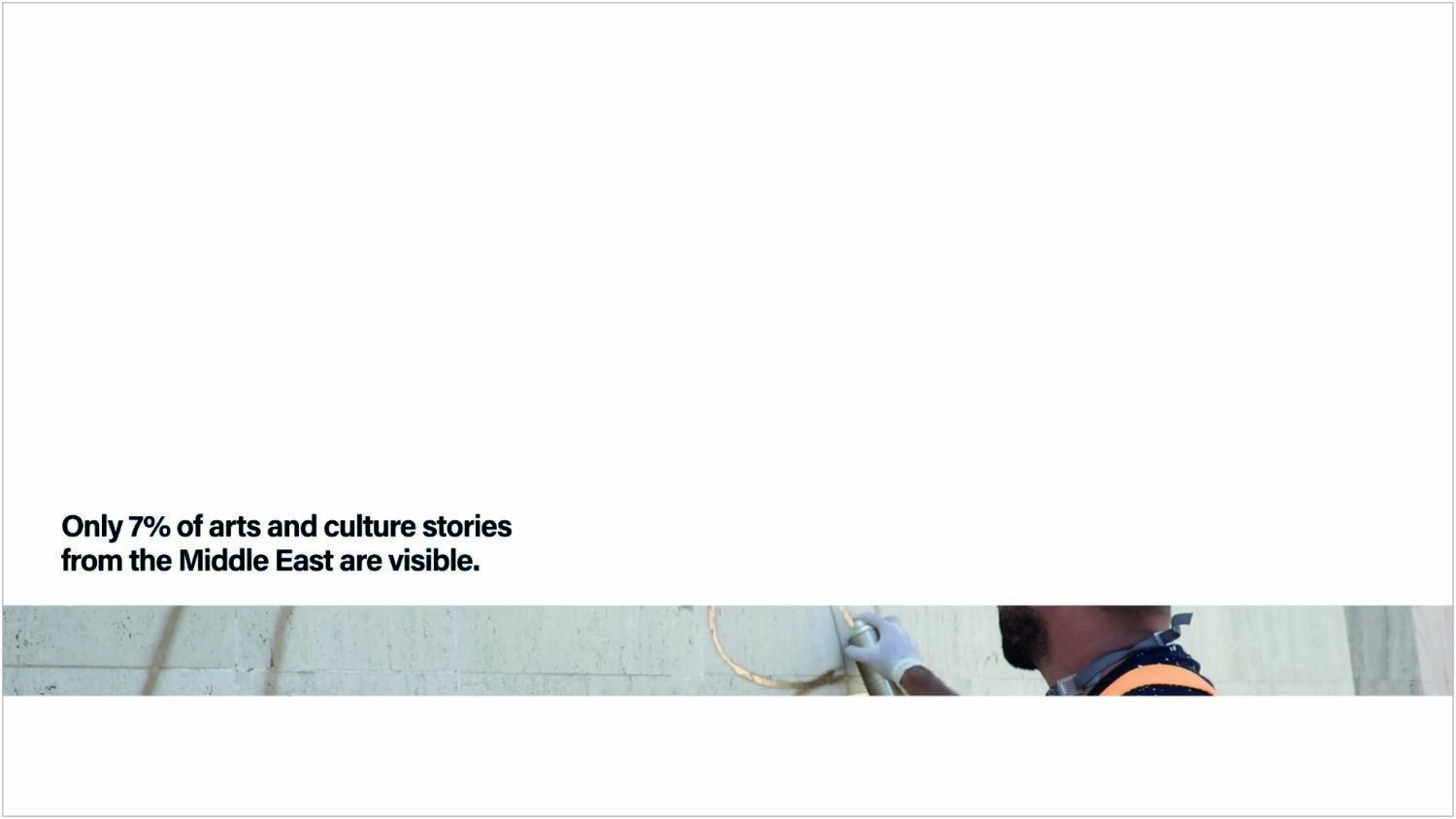

Using our listening platform, meant we could use the latest statistics live in our online ads. This meant you could see in real time how much coverage a positive Middle Eastern story was getting. The data was shocking.
We focussed on eight varied and positive topic areas, such as Women in Innovation & Business, Sports, Space Exploration and Renewable Energy. The data showed that on average only 1% of all positive news stories from the region are reported in Western media. The highest was 7% for Arts & Culture and Peace and Prosperity.
From the moment our audience interacted with our communications they became more informed and aware of the gap in their understanding. This was an important point in itself. And the beauty was, it was extremely difficult to argue with. But of course this wasn’t simply about telling people what they were missing. It was about attracting new readers and telling people where they could get all the information they needed – to form an intelligent, balanced opinion.
Results
Reach
Over 16 million people
Click through rate
0.9% – Double the industry average
Readership Increase (UK only)
128%
